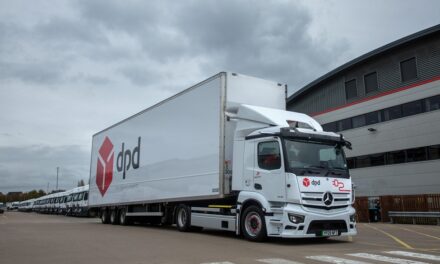
DPD integrates ParcelShop network in Germany, Austria, Benelux
Parcel express carrier DPD has linked up its ParcelShops in Germany, Austria and the Benelux countries to establish a cross-border parcel shipping network. The company majority-owned by La Poste’s international parcel business Geopost Group said the cross-border integration means customers will be able to hand an item into a local DPD ParcelShop and have it shipped directly for collection in another ParcelShop in any of the participating countries.
DPD said its “favourably priced” option was being requested by more and more customers who cannot be at home during the day to receive parcels.
ParcelShops are generally existing retail businesses like convenience stores or fuel stations who provide parcel services across the counter. So far, about 15,000 ParcelShops in DPD’s core markets have been established, with the company promising to add more locations “all the time”.
In Germany, the company is expanding its 5,000-strong network of ParcelShops to 8,000 in the medium term.
In a few weeks’ time, the international network will extend to link-up with DPD ParcelShops in France and Switzerland.
A further phase of integration is expected to see the UK, Portugal and Baltic Republics joining the network in future, once the infrastructure is available. In the UK DPD does not have its own parcel shops, using Hermes ParcelShops for its returns service.
Boris Winkelmann, the DPD Germany chief executive, said his company was the first to provide a ParcelShop network spanning Europe’s core markets.
“This provides DPD with the ideal preconditions for sustained growth in crossborder shipping to private consignees, and during the coming months we will continue to build on this solid basis,” he said.
The cross border service will see parcel recipients sent a text message or email when a parcel has arrived in their designated ParcelShop.
DPD said that ParcelShops are playing an increasingly important part in its overall effort to offer a “direct interaction” with parcel consignees so that they can fit parcel deliveries into their daily routine conveniently and flexibly, to receive goods as quickly as possible.












